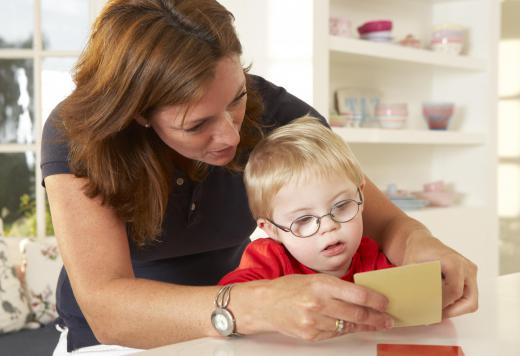At LanguageHumanities, we're committed to delivering accurate, trustworthy information. Our expert-authored content is rigorously fact-checked and sourced from credible authorities. Discover how we uphold the highest standards in providing you with reliable knowledge.
What is a Disfluency?
A disfluency is a break or interruption in otherwise normal speech. Depending on the degree of disfluency involved, it may slip by without notice, or make someone hard to understand. In some cases, disfluency is also combined with stuttering, which can make someone almost unintelligible, and it can also be very frustrating for the speaker. Almost everyone uses disfluencies in their speech, for a variety of reasons, and research of disfluencies has interested many linguists.
Perhaps the most well-known example of a disfluency is a filler word. Anyone who has seen a movie with valley girls remembers the "likes" which litter their speech, but words like "ah," "uhm," "er," and so forth are also used as filler words in sentences. In fact, researchers have found that each language has its own unique filler words, which sound markedly different from each other. Americans, for example, are very fond of "like," while British speakers tend to use "er," and Spanish speakers often interject "ehhh" as a filler word.

A disfluency can also take the form of a partial repeat, as in "I said...I said that I wanted to finish the dishes before going out." Restarted phrases are a common form of disfluency, but partial repeats can also occur in the middle of a sentence as someone loses focus or is interrupted. Sometimes just a syllable or sound is repeated, rather than a whole word.
Disfluency can also take the form of sentence repair, as someone recognizes that an error has been made and backtracks to fix it. Humans are surprisingly good at fixing errors on their own, so sentence repair can draw attention to an error which might have otherwise slipped past without notice. Sentence repair often involves a partial repeat, as in "the cats wants to sit on lap...er, rather the cat wants to sit on your lap."
Small errors and filler words are common in spoken languages, especially when someone is in a hurry or is having trouble conveying an idea or concept. In research performed on disfluencies in college lectures, scientists noted that professors in the humanities tended to have the most disfluencies in lectures, while professors in the sciences had the least. The research team suggested that this was because humanities professors had a range of words to choose from when discussing concepts, while lectures in the sciences often have a precise library of words, making their speech less disfluent.
AS FEATURED ON:
AS FEATURED ON:











Discussion Comments
As a comedic ventriloquist for many years, I don't see this as a language disability. Instead I see it as an ability most people use to their advantage to meet required adjustments (ad-libs) to thoughts and ideas on the fly, so to speak -- unlike the parrot.
"I said...I said that I wanted to finish the dishes before going out." stated the distinguished Mr. Foghorn Leghorn. Larry A
Is there any cure available for this language disability?
Post your comments